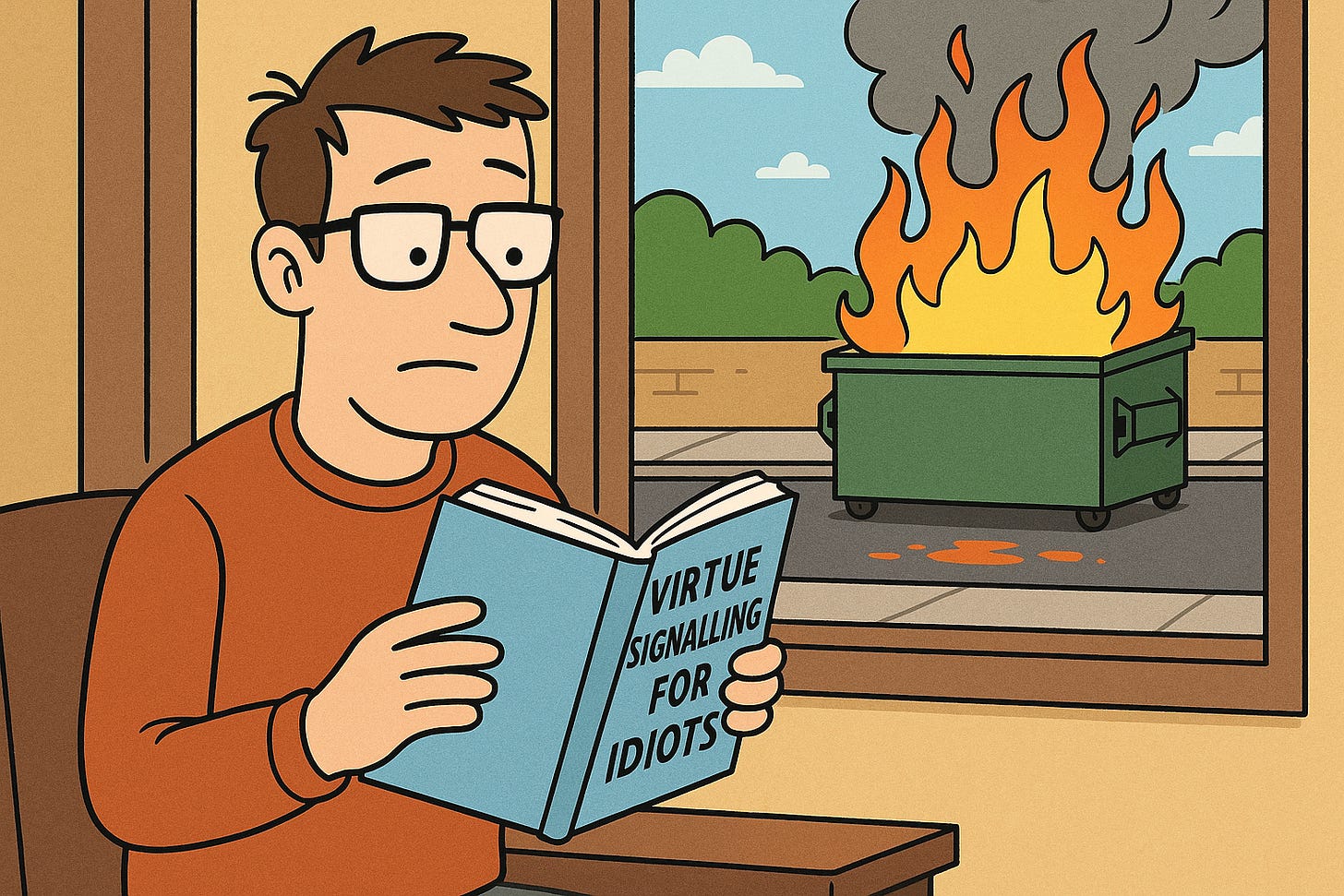Tao Te What Now? (Chapters 16-18)
A slightly unhinged walkthrough of the Tao Te Ching
So you’ve decided to read the Tao Te Ching.
Either you’re seeking peace, chasing enlightenment, trying to out-vibe your therapist, or you just like obscure philosophy that makes you feel smart and dumb at the same time.
Good news: you’re in the right place.
Bad news: it won’t help you get your life together in the way you think it will.
Better news: it might show you that you never had to in the first place.
This ancient Chinese text, written by Laozi around 2,500 years ago, is basically a poetic mic drop about the nature of reality, control, ego, and why trying hard often makes things worse. It’s short, mysterious, non-linear, and aggressively subtle. You won’t get it all on the first read. That’s part of the charm. It’s also part of the test. Which you are not supposed to try to pass.
About This “Cursed” Interpretation
We’re going to go through each chapter, one by one.
Instead of solemn chanting or incense or “sitting with it in silence,”
We’re going to translate it for actual humans with internet-fried brains, executive dysfunction, and a fondness for sarcasm.
Disclaimers:
We love the Tao. We also enjoy poking fun at ourselves while getting deep. That’s the spirit this was written in.
If you're looking for academic accuracy or lineage-specific devotion… this isn’t that.
If you're spiritually curious, allergic to self-serious gurus, and suspicious of people who wear too much linen—welcome home.
Chapter 16
Return to Sender: Cosmic Edition
Empty your mind. (Yes, even that thought. The one about snacks).
Let your heart go quiet… like actual quiet… not “I put my phone on vibrate”
Watch the circus of thoughts run around, spiral, panic, achieve, flail...
and just sit there like the timeless ghost that you are, watching a group project collapse in slow motion. (geez, I used to think those thoughts were all “me” only like two chapters ago)
Because all things, every try-hard, attention-seeking fragment, eventually return to the Source. (Here he goes with the Matrix references again)
The Source = The stillness underneath it all.
And that return? That’s peace.
If you don’t remember the Source,
you’ll wander around life like a phone with no signal:
confused, overcorrecting, and emotionally buffering.
But when you do remember?
You stop taking things personally.
You laugh at weird moments.
You become weirdly kind, like a grandmother who’s seen some sh*t.
You gain a quiet dignity that doesn’t need to announce itself.
You become unbothered by life and unafraid of death.
Because now?
You’re not clinging.
You’re just present.
Rooted.
Already returned.
TL;DR: When you know where you came from, you stop freaking out about where you're going. And death? Just another return trip.
Chapter 17
Real Leadership: Now With 100% Less Ego
1st Place leaders? You barely notice them.
No big speeches. No drama. No weirdly aggressive or virtual signalling social media posts.
Things just… work.
2nd Best? A leader who is loved.
3rd Best? A leader who is feared.
Bottom of the barrel? A meme. Hated.
And here’s the twist:
If you don’t trust people?
They’ll start living down to your expectations.
But the Sage?
Doesn’t perform.
Doesn’t overexplain.
They act. Quietly. Effectively. Without credit addiction.
And when everything’s done? You think:
“Wow! We did this ourselves!”
Yeah... You think you did. That’s how good he/she is.
TL;DR; Great leaders leave no fingerprints.
They trust first, speak last, and disappear before the applause.
Chapter 18
Fake Virtues for When You’ve Lost the Plot
When the Tao is forgotten? “Good is trendy”.
Performative Corporate Wokeness instead of, you know, being fair, not destroying ecosystems, that sort of thing.
When we lose the body’s quiet wisdom?
“I’m exhausted, but my smartwatch says I got 92% sleep efficiency, so I must be fine.”
When the family stops being peaceful?
“Family is everything” posts start to appear from someone who hasn’t texted their sibling in six years
And when society hits full dumpster fire mode?
Half the country is trying to “save” it, the other half trying to “take it back,”
and neither side trusts a single institution involved.
TL;DR: When the people are truly at peace, they don’t need speeches. Or t-shirts. Or enemies.



